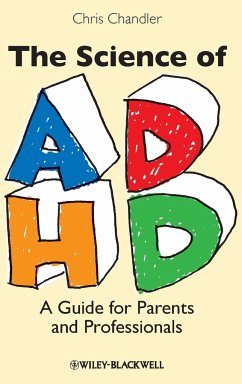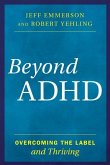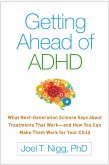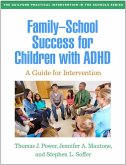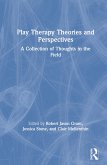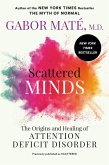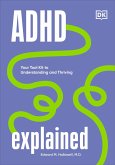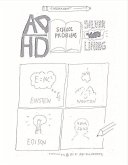Attention-Deficit Hyperactivity Disorder is a long-term disorder affecting many children and adults. It is also a highly controversial psychiatric disorder; in its cause, its diagnosis, and the effect of diagnosis on the patient. This controversy is exacerbated by the commonly recommended treatment for the condition - Ritalin. The Science of ADHD addresses the scientific status of ADHD in an informed and accessible way, without recourse to emotional or biased viewpoints. The very latest studies are used to present a reasoned account of ADHD and its treatment. The Science of ADHD is highly multidisciplinary, covering the areas of genetics, neuroscience, psychology and treatment. The ever increasing scientific evidence is described and discussed, informing the reader of the limitations of the science, but also the benefits that scientific enquiry can bring to understanding what goes on in the ADHD brain.
Hinweis: Dieser Artikel kann nur an eine deutsche Lieferadresse ausgeliefert werden.
Hinweis: Dieser Artikel kann nur an eine deutsche Lieferadresse ausgeliefert werden.
"This is a really useful book and covers just abouteverything you want to know about ADHD." (YoungMinds Magazine, 21 March 2013)
"The book is a masterful summary of the extant literature onADHD, sophisticated enough for professionals and accessible enoughfor parents and other laypeople. It deserves to be read by anyonewith a personal or professional interest in ADHD. Parents shouldread it to become inoculated against the many myths and simplisticideas about ADHD that they will encounter. Professionals shouldread it as a stimulus to examining recent and classic primarysource documents on the topic. For either audience, the subtitle'sdescription of the book as a "guide" is true in the fullest senseof the word." (Metapsychology, 9 August 2011)
"Overall the book provides an excellent platform, and theimpressive list of references means that the reader can exploremuch farther in their area of interest." (The Psychologist, 1 July2011)'The Science of ADHD is a felicitous mix of thescholarly and popular. I would certainly recommend it as a valuablehandbook for informed parents and professionals engaged in themanagement of children with ADHD. At the same time, senior studentsand researchers about to undertake work in the area would alsogreatly benefit from it.'
--Emeritus Professor John Bradshaw, Monash University,Australia
'This is an accessible and sane account of our knowledgeabout ADHD. The combination of personal experience and scientificunderstanding make it an attractive and helpful account for allthose wanting to learn.'
--Professor Eric Taylor, Kings College London Instituteof Psychiatry, U
"The book is a masterful summary of the extant literature onADHD, sophisticated enough for professionals and accessible enoughfor parents and other laypeople. It deserves to be read by anyonewith a personal or professional interest in ADHD. Parents shouldread it to become inoculated against the many myths and simplisticideas about ADHD that they will encounter. Professionals shouldread it as a stimulus to examining recent and classic primarysource documents on the topic. For either audience, the subtitle'sdescription of the book as a "guide" is true in the fullest senseof the word." (Metapsychology, 9 August 2011)
"Overall the book provides an excellent platform, and theimpressive list of references means that the reader can exploremuch farther in their area of interest." (The Psychologist, 1 July2011)'The Science of ADHD is a felicitous mix of thescholarly and popular. I would certainly recommend it as a valuablehandbook for informed parents and professionals engaged in themanagement of children with ADHD. At the same time, senior studentsand researchers about to undertake work in the area would alsogreatly benefit from it.'
--Emeritus Professor John Bradshaw, Monash University,Australia
'This is an accessible and sane account of our knowledgeabout ADHD. The combination of personal experience and scientificunderstanding make it an attractive and helpful account for allthose wanting to learn.'
--Professor Eric Taylor, Kings College London Instituteof Psychiatry, U

